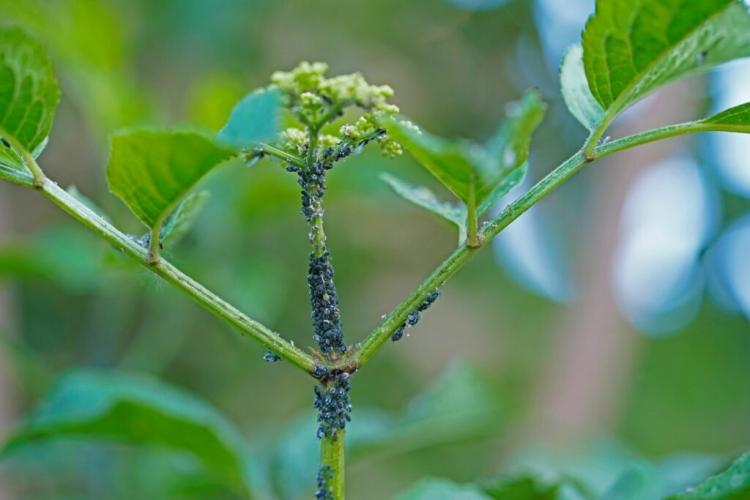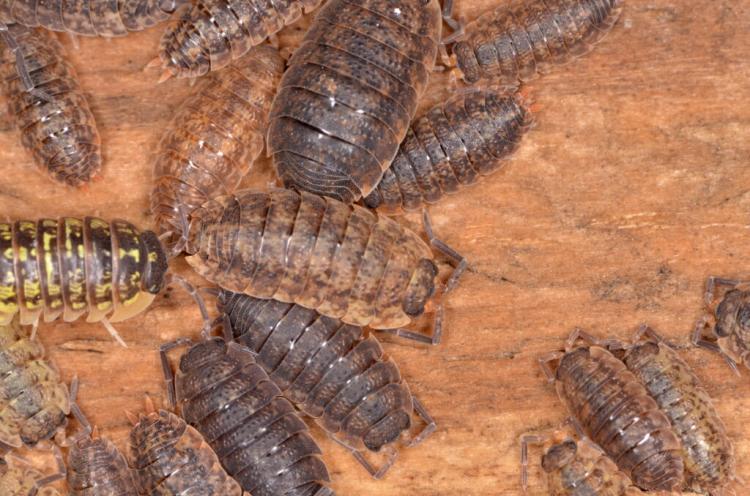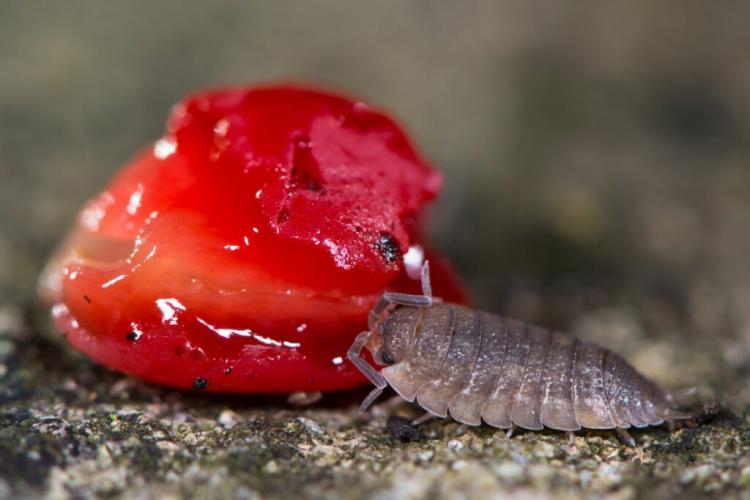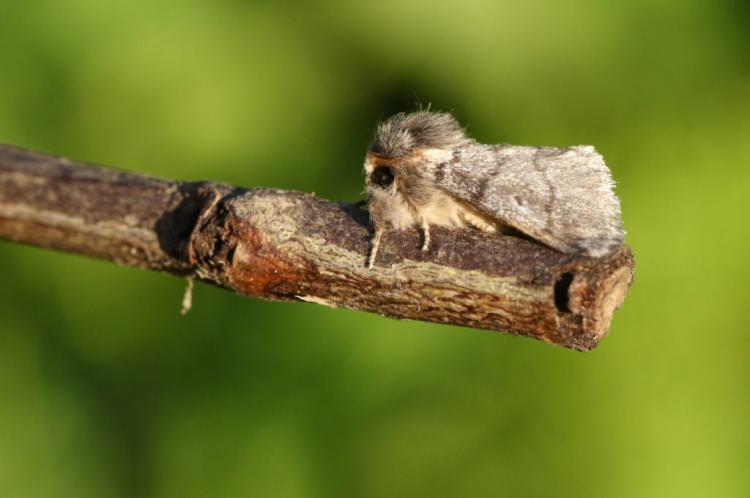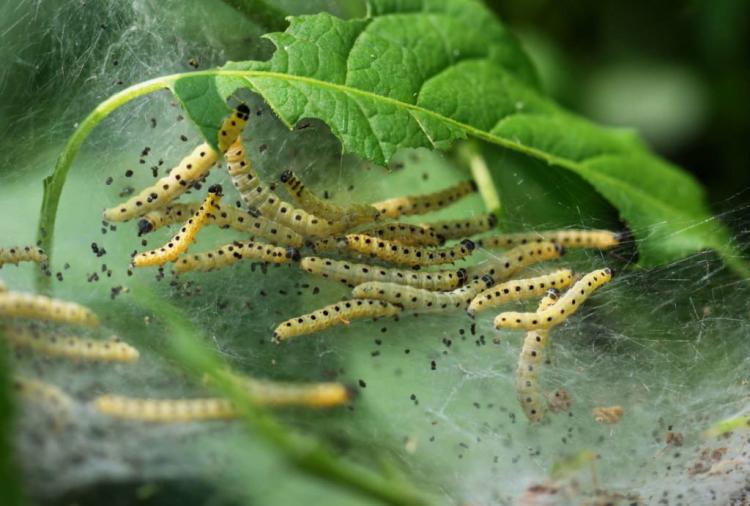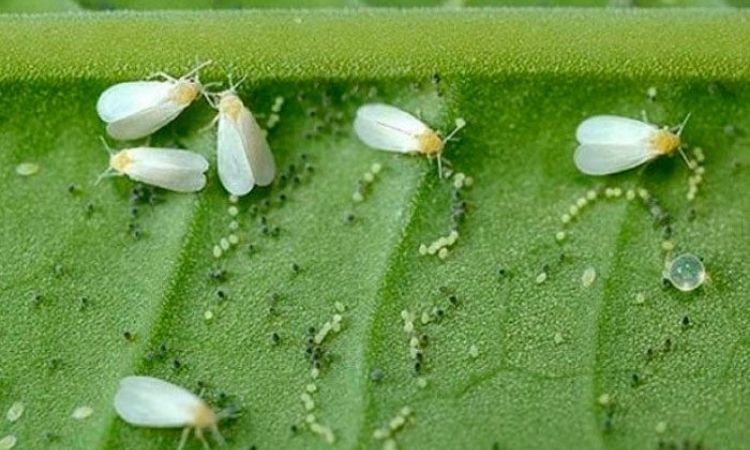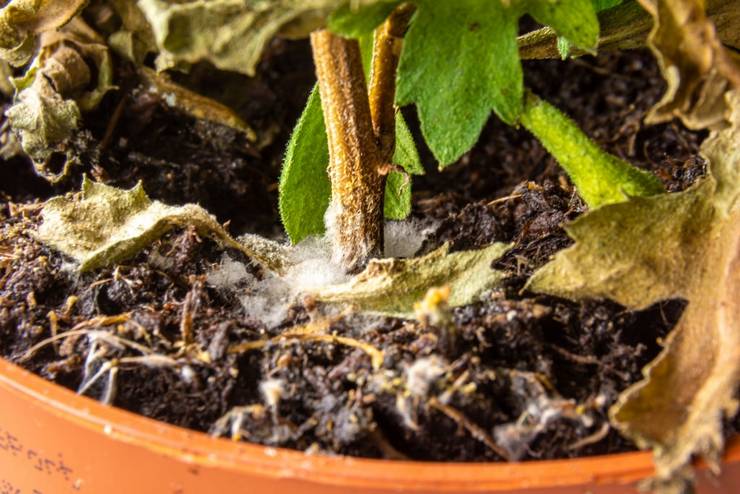Black Bean Aphid: Detection, Prevention & Natural Control
Will the black bean aphid affect your beans or ornamental plants? We explain how to prevent black lice and how to fight them successfully. Aphids can be found in almost every garden, the black bean louse being particularly common. But the bean louse cannot only infect beans for a long time. We will show you how you can fight the black lice naturally and prevent them from re-infesting.
Recognize the black bean louse
Table of Contents
The black bean louse ( Aphis fabae ) is one of the most common aphid species in gardens. The black bean louse does not only infect beans (Phaseoleae) for a long time. In addition to the particularly susceptible beans such as the field bean ( Vicia faba ) and other legumes (Leguminosae) such as peas ( Pisum sativum ), beetroot ( Beta vulgaris subsp. Vulgaris ), Swiss chard ( Beta vulgaris subsp. Vulgaris ), spinach ( Spinacia oleracea) are also produced ), Asparagus ( Asparagus ), dahlias ( Dahlia ) or clematis attacked by black aphids.
As the name suggests, the black bean aphid is black in color. To recognize an attack by aphids, for example, the black bean louse, it is best to look at the shoot tips or flower buds of your plants. Here the black lice especially like to suckle the sweet phloem sap of the plants. Symptoms that indicate an aphid infestation is deformed young leaves and shoots, leaves stuck together with honeydew, and an increased occurrence of ants. Ants and aphids often appear together. The ants target the sticky honeydew that the lice excrete when they suckle on the plant. They even protect the lice from predators. The honeydew also collects on leaves and can be colonized by sooty fungi (Capnodiales), which inhibit photosynthesis in plants.
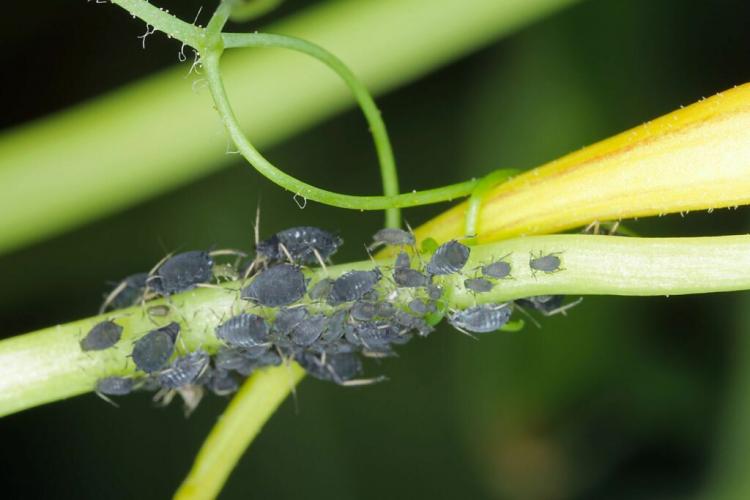
Lifestyle and characteristics of the black bean louse
The black bean louse changes host plants in autumn and lays its eggs on what are known as winter hosts. The common euonymus ( Euonymus europaeus ) or the common snowball ( Viburnum opulus ) is the winter hosts of the black bean louse. From March winged female lice hatch here and from April spread to summer farmers like beans and spinach. Once a host plant has been found, a single female can give birth to several offspring in one day without having to rely on fertilization by a male.
Especially in dry and warm weather, it can quickly lead to mass reproductions. From June or when a plant is threatened with danger or overpopulation, winged aphids hatch again, which cover longer distances and can thus attack plants that are further away. In autumn the aphids seek refuge with the winter hosts and lay eggs there again, which last through the winter.
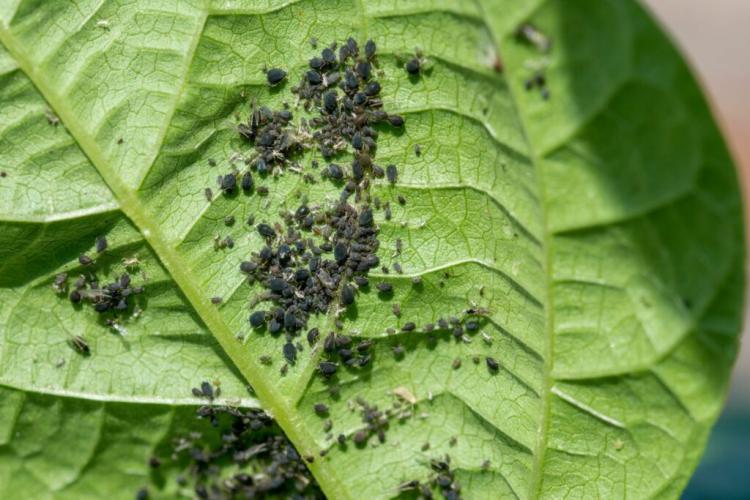
Fight black bean louse
Individual aphids are not a problem. However, if there are too few beneficial insects and dry, warm weather to mass reproduction, plants can be damaged by aphids. To control aphids, it is not strictly necessary that you can determine exactly which aphid species it is. We will show you how you can fight the black aphids successfully and naturally.
Fight black aphids biologically
There are some means available to combat aphids. We recommend that you refrain from using synthetic agents, as these pose a higher risk of harming beneficial insects or the user. Instead, there are very effective and environmentally friendly biological alternatives. Remedies based on neem are particularly effective against black aphids. The neem oil comes from the seeds of the Indian neem tree and contains an active ingredient that enables aphids to be combated naturally.
The effect of organic pest-free neem is based on this valuable neem oil and enables a purely plant-based control of aphids. The active ingredient of organic pest-free neem is absorbed by the plant and distributed in it. When the aphids suckle on the plant, they absorb the active ingredient and can therefore also be combated in hidden places.
The active ingredient stops the aphids from sucking quickly and disrupts their development, which leads to the aphids dying off. To use it, you can simply mix organic pest-free neem with water and spray the emulsion onto the infested plants. The exact mixing ratios can be found in the product packaging. Please note that you use our organic pest-free neem exactly as specified in the application recommendation. Read the instruction leaflet before use.
Rapeseed oil-based agents are also available for combating aphids. However, these do not have a systemic effect, so they cannot be absorbed by the plant. Some products contain pyrethrins, which can be obtained from plants but can still damage many different beneficial organisms.
You May Also Like Is Neem Oils for Dogs, Cats, and Horses?
Home remedies for the black bean louse
In particular, a slight infestation by the black bean louse can be combated with home remedies. One of the most effective home remedies is soapy water made from 150 grams of soft soap dissolved in five liters of water. The soapy water can then be applied to the infected plant several times a day. Nettle broth can also be used against aphids. To do this, add 500 grams of fresh nettles to five liters of boiling water and let this brew cool down. With a spray bottle, you can spray the strained brew onto the infested plants twice a day. You can find out more helpful home remedies in our special article on home remedies for aphids.
Beneficial insects against black aphids
Beneficial insects help in the garden, especially as natural opponents, to prevent mass reproduction. The targeted use of beneficial insects in the event of an attack by aphids is also possible. Beneficial organisms such as ladybird larvae or parasitic wasp eggs can be bought in special online shops. This targeted use is particularly effective in closed rooms, for example in the greenhouse or winter garden. We have summarized further exciting tips on beneficial insects against aphids for you in our special article.
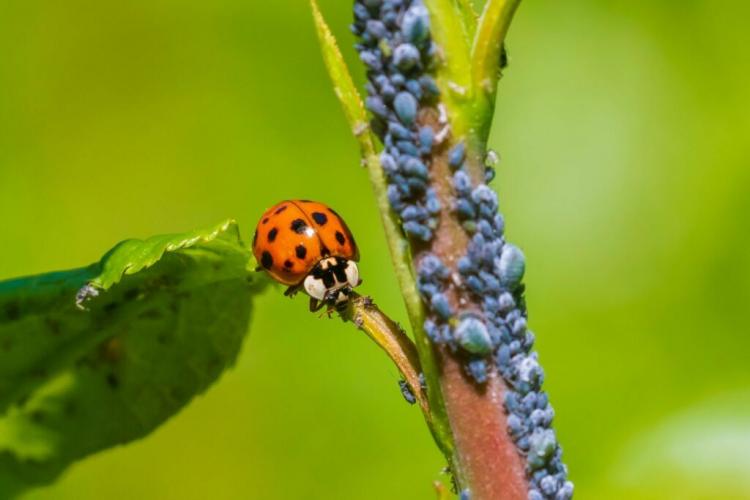
Prevent black aphids
The influx of aphids is impossible to avoid. Sooner or later, as a garden owner, you will be confronted with pests. It is wise, however, not to plant winter aphids such as the coat and the common snowball in the garden. Owners of near-natural gardens have a clear advantage when it comes to aphids because a particularly near-natural garden offers many beneficial insects in a home.
A balanced ratio of aphids and their predators can prevent aphids from multiplying on a large scale. Some species of parasitic wasps and ladybirds, in particular, can be used as beneficial insects against aphids. To prevent a strong infestation, we recommend that you promote beneficial insects in your garden in a targeted manner. In summer, an untouched flowerbed with native flowering plants and herbs helps welcome beneficial insects.
A beneficial organism magnet is a seed mixture that makes it easier for you to create such a flower meadow. In the cold season of the year, retreats such as a pile of bark or an insect hotel are ideal to help beneficial insects through the winter.
Appropriate fertilization of your plants can also reduce the likelihood of aphid infestation. We recommend that you ensure that you have a good supply of potassium and that you refrain from using nitrogen-based fertilizers. This ensures strong plants that are less likely to be attacked by aphids. Primarily organic fertilizer with a high potassium content is. Avoiding overly dense stands is also helpful in growing vigorous plants and reducing aphids skipping in spring.
The queen of flowers, the rose, is particularly popular with aphids. In our special article on aphids on roses, we give you tips on how to get rid of these nuisances.
